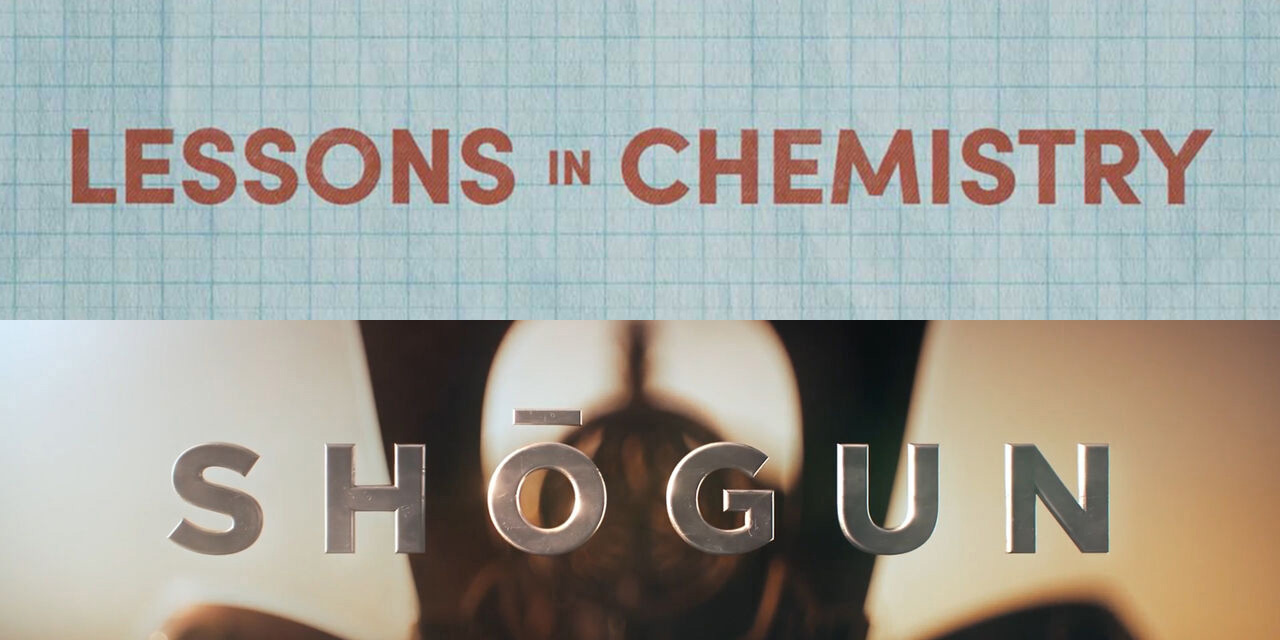Emmy-Nominated Elastic Creatives Hazel Baird and Nadia Tzuo Share What Being Nominated Means To Them And Their Advice For Creatives

This is truly an exciting awards season for Elastic! Both Creative Director Hazel Baird and Creative Director Nadia Tzuo have been nominated for 2024 Primetime Emmy Awards, both in the category of Outstanding Main Title Design — Hazel for their work on Lessons in Chemistry for AppleTV+ and Nadia for hers on Shōgun for Hulu.
Though these are far from the first nominations for either, both Hazel and Nadia have worked hard and pushed the bounds of their own creativity to get to where they are today. We spoke with the two Elastic Creative Directors about what being nominated for this year’s Emmy means to them, how they got to this point in their career, and what advice they would share with up-and-coming creatives.
What does it mean to you to be nominated for this award?
Hazel Baird: It’s an incredible honor to be nominated, especially among such talented peers. This is my third nomination, and each time it feels like a surprise, but I’m deeply grateful.
Nadia Tzuo: It is a great honor as an artist, and most importantly, it’s a rare opportunity to reward and celebrate all the team members who made this sequence possible for their work and dedication in this niche field.
Can you tell us a little about what it took to get to where you are in your career today, and what you’ve learned along the way?
Hazel: I believe that my journey to where I am today has been shaped by a combination of luck and perseverance. Since I was 19, I’ve been driven to pursue design in television and film. I deliberately chose paths that would lead me closer to that goal, and I kept pushing forward, even when it was difficult. As a non-binary person, societal challenges have made the journey more difficult. For me, it’s really been about navigating life’s obstacles and staying focused on my goals.
Nadia: In the last 15 years that I’ve worked in motion graphics with a focus on title design, I’ve learned that it is always important for me to respect and feel the story, and look for how to speak for it in the most simple words. It’s such a unique form of art that really allows for creative storytelling.
What has it been like for you to navigate a historically male-dominated industry?
Hazel: When I lived and worked in London, working in the male-dominated industry was particularly tough. It felt like a boys’ club, and I don’t miss it—nor do I ever plan to work there again. While the environment here in Los Angeles is more open-minded, I still encounter challenges, like having my ideas repeated back to me by men. It’s disheartening to see heterosexual, cisgender men advancing more quickly in the industry, often with less effort. This means you end up working twice as hard to prove yourself to achieve the same ambition — I can only imagine how much more difficult it is for women of color. I believe that the more representation we see, the more the industry will change.
Nadia: I feel fortunate that I've always been supported by amazing friends and colleagues with unique talents and skills. As a part of the team at Elastic, I’m lucky to work in a friendly environment with a well-balanced group, who are all passionate about their work.
What advice do you have to other up-and-coming creatives who one day hope to be where you are?
Hazel: If you’re aiming for a director-level position, my advice is twofold: first, being able to manage people is half the battle. You can be the most talented designer, but if you can’t manage a team effectively, the job becomes much harder. Second, ensure you have the right people for the job, and then give them the freedom to express their creativity!
Nadia: I think a title sequence plays a uniquely important supportive role to the show. As much as we want to create stunning visuals as an artist, we can't do it without the empathy to feel for the story. I suggest that creatives read a lot, keep up with their technical skills, always stay with the team, and always be nice to people.
